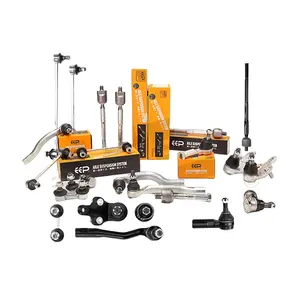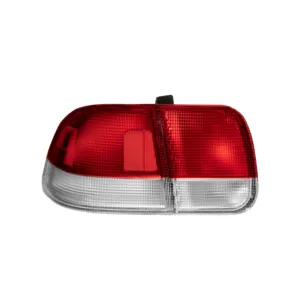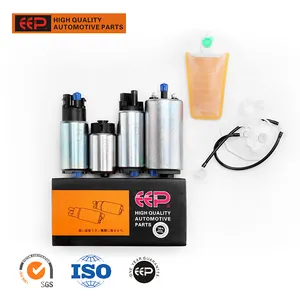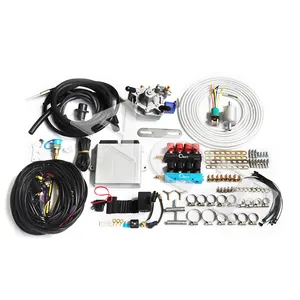Popular in your industry








































































































































Top categories
About radiators
What are Radiators
Radiators are essential components in the cooling system of an automobile, building heating systems, and various industrial applications. Designed to dissipate heat, they play a critical role in maintaining optimal operating temperatures for engines and providing warmth in residential and commercial spaces. In vehicles, radiators prevent engines from overheating and potentially sustaining damage by transferring heat from the engine’s coolant to the air. Similarly, in heating systems, they distribute heat generated by a boiler to warm up rooms.
The principle behind a radiator's operation is simple yet highly effective. It relies on thermodynamics, where heat moves from a warmer object to a cooler one. In an automotive context, a liquid coolant circulates through the engine, absorbing heat. This heated coolant then flows through the radiator’s core—a series of narrow tubes—and the heat is released into the atmosphere through the large surface area of the fins. Air passing over these fins carries away the heat, cooling the coolant before it recirculates back into the engine.
For those looking to maintain or install heating systems in buildings, radiators serve a slightly different purpose—transferring thermal energy to create a comfortable indoor environment. These radiators work by circulating hot water or steam within an enclosed metal container and releasing warmth into the room through convection and radiation.
Understanding how radiators function is crucial for anyone involved in automotive manufacturing, maintenance, heating installation, and various industrial processes where temperature regulation is paramount. Ensuring that a radiator is properly sized and matched to the application is key to its efficiency and longevity.
Types of Radiators
The variety of radiators available caters to a broad spectrum of applications and requirements. Each type has been designed with specific functionalities to address different cooling or heating needs.
Aluminum Radiators: Widely used in modern vehicles due to their lightweight and excellent thermal conductivity, aluminum radiators are efficient at dissipating heat. They are often found in performance cars where weight reduction and cooling efficiency are priorities.
Steel Panel Radiators: Commonly used in home and commercial heating systems, these radiators are known for their durability and high heat output. Their flat panel design makes them unobtrusive and suitable for various interior designs.
Cast Iron Radiators: These traditional radiators are chosen for their classic look and long-lasting heat retention. They are often found in older buildings or renovation projects where maintaining a period aesthetic is essential.
Designer Radiators: Emerging as a stylish alternative for modern interiors, designer radiators come in various shapes and artistic designs. They serve both as functional heating elements and as decorative pieces within a space.
Towel Rail Radiators: Specifically designed for bathrooms and kitchens, these radiators not only heat the room but also allow for towels to be warmed and dried.
Each type of radiator has its own set of common use cases and selection will depend on factors such as the required heating capacity, space constraints, aesthetic considerations, and budget.
How to choose Radiators
Selecting the right radiator requires careful consideration of several factors to ensure that it meets your business's specific needs. Whether you're sourcing radiators for automotive use or for building heating systems, it's important to analyze your requirements thoroughly.
Consider the material of the radiator; aluminum offers excellent heat dissipation for automotive cooling systems while materials like steel can be more suitable for building heating due to their high heat output. The size of the radiator should match the application; an undersized radiator may not provide sufficient cooling or heating while an oversized one could result in unnecessary expenditure.
For businesses involved in automotive applications, engine specifications such as displacement (1.6L, 2.5L etc.) will dictate the size and capacity of your chosen radiator. Make compatibility is also crucial—ensure that the radiator fits various vehicle makes like VW or Land Rover without modification.
In building applications, assess space availability for installation with design styles such as modern or traditional influencing your choice based on interior decor preferences. Project solution capabilities like graphic design or 3D model design may be important if customization or integration into specific projects is required.
Additionally, consider after-sale services offered by suppliers on Alibaba.com such as return and replacement policies or onsite installation support which can be significant factors impacting your purchasing decision.
By evaluating these elements carefully, businesses can ensure they select radiators that not only meet their performance requirements but also offer reliability and support post-purchase.
Best Radiators on Alibaba.com
Alibaba.com stands out as an exceptional marketplace for businesses seeking a comprehensive range of radiators suitable for various applications—from automotive cooling systems to building heating solutions. With over two decades of experience connecting buyers with suppliers globally, Alibaba.com provides access to an extensive selection of products tailored to meet diverse business needs.
The platform's user-friendly interface allows businesses to filter products based on specific requirements such as engine sizes ranging from 1.6L to 3.2L, vehicle makes including universal options or brands like Mercedes-Benz, and colors from classic black to stainless steel finishes. This customization extends further with options for different applications whether it's for residential spaces like apartments or specialized settings like hospitals.
Businesses benefit from unparalleled convenience with Alibaba.com's mobile-friendly features and multilingual support that facilitate easy communication with suppliers worldwide. The assurance provided by Trade Assurance service ensures secure transactions and peace of mind until delivery is completed. Alibaba.com’s commitment to helping small and medium-sized businesses thrive reflects in its array of products that cater not only to immediate needs but also foster long-term growth through reliable sourcing solutions for wholesale radiators.
Common FAQs for Radiators
What materials are commonly used in the construction of radiators?
Materials such as aluminum, steel, and cast iron are commonly used in the construction of radiators. Each material has distinct characteristics; aluminum is light and conducts heat well, steel is durable and has high heat output, and cast iron retains heat for longer periods.
How do I determine the appropriate size of a radiator for a specific application?
The size of a radiator should be matched to the heat dissipation requirements of the application. In automotive use, this is often related to the engine size and the vehicle's overall cooling needs. For building heating, it's based on room size and desired temperature levels.
Are there radiators available that can be used universally across different vehicle makes and models?
Yes, there are universal radiators that can fit a range of vehicle makes and models. However, it's essential to check the specifications to ensure compatibility with the particular vehicle in question.
Can radiators be custom designed to fit specific project requirements?
Some suppliers offer project solution capabilities such as graphic design or 3D model design that allow for customization of radiators to meet specific project requirements.
What types of after-sale services are typically offered with radiator purchases?
After-sale services can include return and replacement policies, free spare parts, onsite inspection, onsite installation, and onsite training. Availability varies by supplier.
How does the application of a radiator affect its design and features?
The application influences the radiator's design, such as slim profiles for modern interiors or robust construction for industrial settings. Features may include special coatings or fittings tailored to specific uses like floor heating systems or towel rail designs for bathrooms.
What should be considered when choosing a radiator for a heating system in a building?
Considerations include the type of heating system (hot water or steam), heat output requirements, space constraints for installation, design style preference, and project solution capabilities if customization is needed.
Are designer radiators functionally different from traditional radiators?
Designer radiators are primarily differentiated by their aesthetic appeal but are also designed to provide efficient heating. They may offer unique shapes and finishes that complement modern interior design while still serving their primary function.
How do I know if a radiator is suitable for high-pressure systems?
Radiator specifications should indicate whether they can handle high-pressure systems. It's important to choose a radiator capable of withstanding the specific pressure requirements of your system.
What factors influence the longevity and durability of a radiator?
Factors include material quality, manufacturing process, operating environment (such as exposure to corrosive substances), and proper maintenance practices. High-quality materials and robust construction usually contribute to longer-lasting radiators.
Can radiators be environmentally friendly or energy-efficient?
Yes, some radiators are designed to be more environmentally friendly by using recyclable materials or being more energy-efficient through better heat distribution which reduces overall energy consumption.
Is it possible to find radiators with features like waterproofing or anti-bacterial properties?
Radiator features can include waterproof coatings or anti-bacterial properties that make them suitable for use in environments like hospitals or bathrooms where these features are beneficial.














































































































